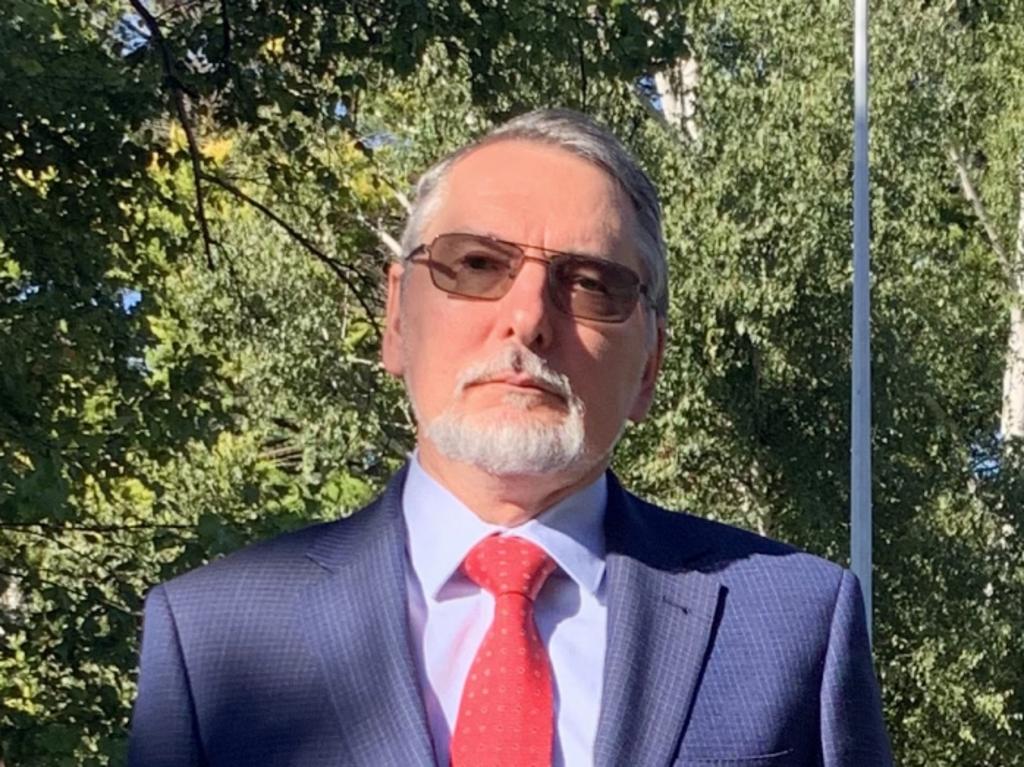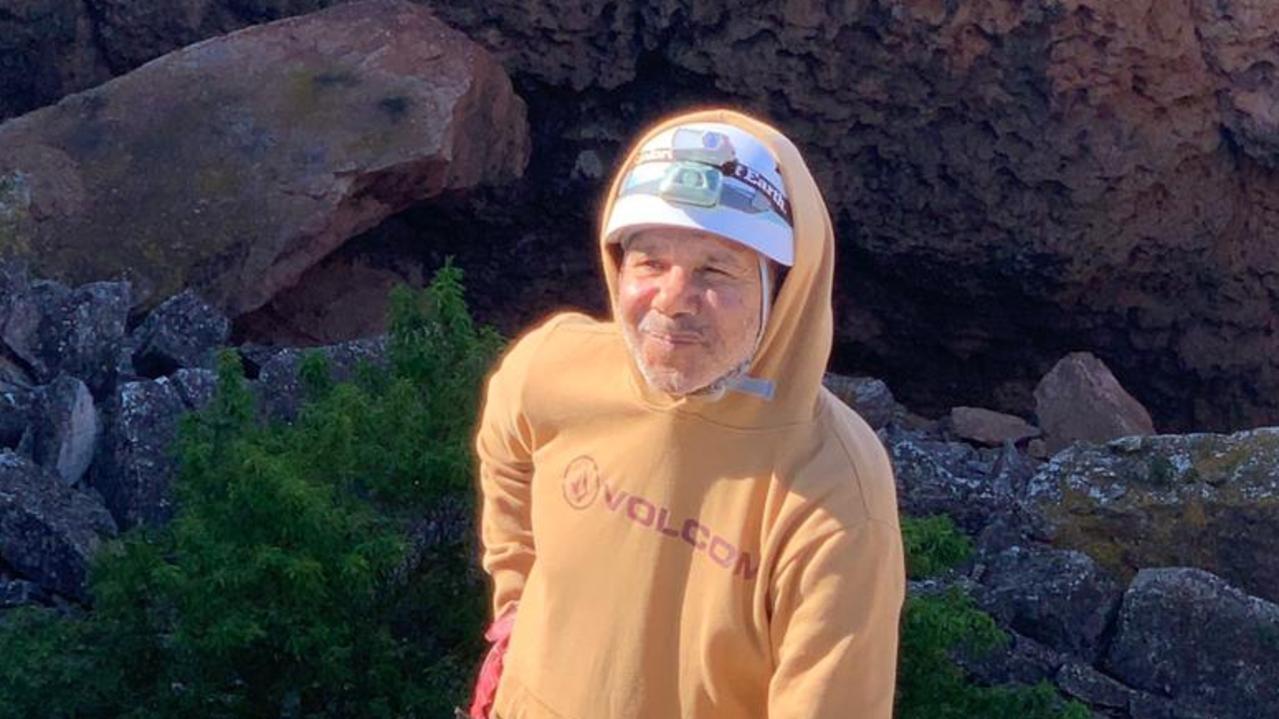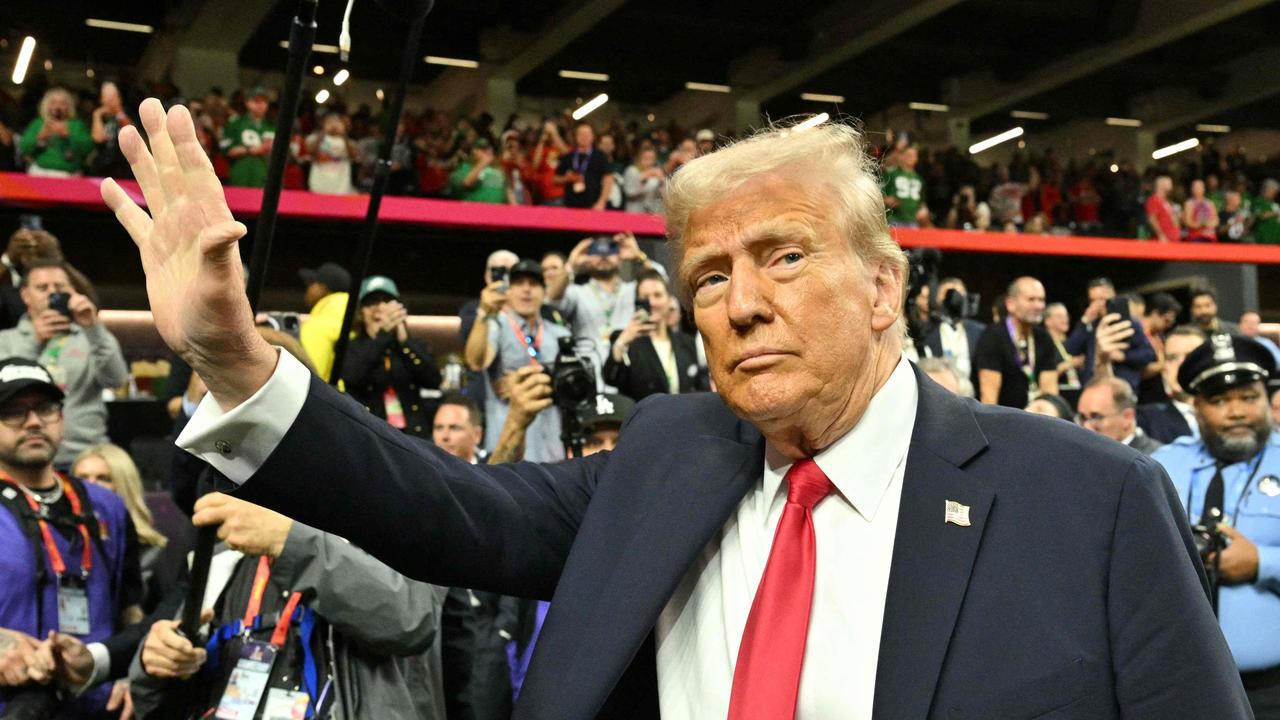Full transcript: The Australian’s interview with Russia’s ambassador to Australia Alexey Pavlovsky
The Ukraine conflict, Vladimir Putin and Xi Jinping, AUKUS, the downing of MH17: read the full transcript of the interview with Russia’s ambassador to Australia Alexey Pavlovsky.
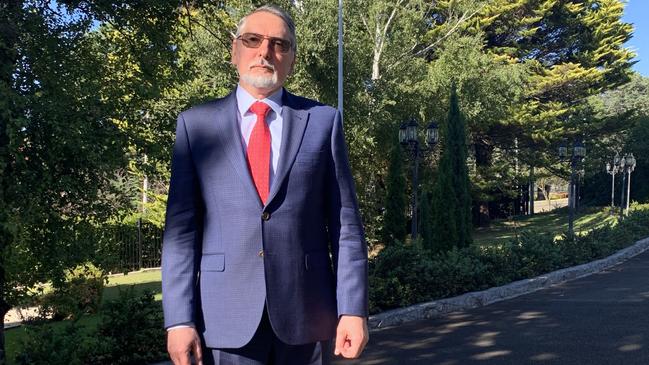
Read below a full transcript of Dennis Shanahan’s interview with Russia’s Ambassador to Australia, Alexey Pavlovsky, in Canberra on March 31.
SHANAHAN:
Ambassador, it’s 12 months since my last interview with you and of course, there’s been a change of government in Australia. Has there been any change in attitude towards you as a Russian diplomat? And are there open lines of communication with you with the new foreign minister and Labor government?
PAVLOVSKY:
Talking of the change of government I, frankly, haven’t noticed a difference after the Labor cabinet came, in terms of their attitude to Russia. We all know there are bipartisan aspects in the foreign policy of Australia. And this is clearly one of them.
There is obviously no direct communication with the current foreign minister, as there was none with her predecessor. However, business-like contacts with DFAT at the appropriate level are maintained and I believe they are useful. That is more or less how it works for my Australian colleague in Moscow.
SHANAHAN:
The conflict in Ukraine is now more than a year old, and there are no plans for Ukraine to join NATO. What is the existential threat to Russia now that you mentioned 12 months ago?
PAVLOVSKY:
If anything, last year’s developments confirm the validity of our concerns about the existential threat I was referring to a year ago.
Let me recapitulate briefly. The ultra-nationalist regime, the West brought to power in Kyiv in 2014, launched punitive military operations against the Russian-speaking population in the eastern provinces and developed systemic discrimination against the Russian speakers in the rest of the country. It made Ukraine an eager instrument in the Western strategy to contain Russia. Then emerged a very feasible prospect of Ukraine becoming militarily assimilated by NATO, even without formal membership.
We’ve been trying for years to explain our security concerns and red lines, to negotiate mutually acceptable solutions by invoking international law and the UN charter, OSCE states political commitments not to strengthen security at the expense of others. The UN Security Council endorsed Minsk agreements seemed the path to a Ukraine respecting the rights of ethnic minorities and living in peace with its neighbours. But as we know now, former leaders Angela Merkel of Germany, Francois Hollande of France and Petr Poroshenko of Ukraine recently confessed they never intended to implement the Minsk agreement. It was just a trick to gain time and rearm Ukraine against Russia. At the end of 2021, we came up with draft agreements, based on the principle of indivisibility of security. If adopted, they would have ensured a peaceful future for Ukraine and the continent. But they were again, arrogantly dismissed.
With all our diplomatic efforts blocked, we were left with no choice but to push back militarily. And then what happened? The West doubled down. Now NATO is waging a full-fledged proxy war against Russia cynically using Ukraine as their tool notwithstanding, again, that it is not a member of the Alliance.
I believe the existential threat no more can be dismissed as imaginary or overblown, it is obvious for everyone in the world to see. And this probably explains the position of the world majority who declined to join the anti-Russian coalition despite the severe twisting of arms on the part of the West. What the Western elites had in mind ever since Mikhail Gorbachev was deceived into believing NATO would not move “an inch” eastwards, all of that is now open and officially articulated as the goal to inflict “strategic defeat” on Russia. I know many in Australia and other western countries would see nothing wrong with this, and would even welcome such an outcome. But Russians can hardly be blamed for disagreeing, much less hypocritically shamed for resisting.
SHANAHAN:
Now, previously, the Russian aim was to break the military strength of Ukraine. Now after such widespread damage to Ukraine and the offensive underway, is there an intention aimed at wider occupation of Ukraine?
PAVLOVSKY:
Our basic motives and intentions were to remove the security threats coming from the territory of Ukraine and to protect the Russian-speaking population in Donbas. The obvious fact is these aims haven’t been achieved yet. Due to the massive support from the West, the Ukrainian military continues to do what it has been doing since 2014, shelling the cities in Donbas and deliberately targeting civilians. Since February 2022 the Ukrainian military has used about 110,000 munitions against this area, including tactical missiles, attack drones, HIMARS, MLRS missiles and large-calibre artillery shells. Barbaric cluster mines, so-called “petals”, especially dangerous for children are being deployed. More than 4,600 civilians including almost 200 children have been killed during this period. And after the Ukrainian forces started to use heavy weapons supplied by the Western countries, the number of civilian casualties quadrupled. By the way, many of these casualties are caused by 155-millimetre shells. Those are exactly what Australia produces and supplies together with France. Noticeably, Ukrainian Ambassador Mr Myroshnychenko, when asked by ABC 7.30, refrained from explicitly denying that Australia’s supplied ammunition could indeed be used to kill innocent civilians in Donetsk.
So coming back now to your question, I am not able to predict how the geographic scope of the military operation will be changing if that’s what you mean. It will all depend on how the goals to protect Russian interests and Russian citizens can be implemented, including, of course, all four new regions that recently joined Russia. With the offensive you mentioned the Ukrainian military has been pushed a bit to the west and this has already brought some relief to the inhabitants of Donestk.
SHANAHAN:
You mentioned the shells which Australia is supplying. Is there direct evidence that shells supplied from Australia have actually caused these deaths?
PAVLOSKY:
No, we don’t know which shells are used to do that, obviously, but we think Australia should pay attention, including as a party to the Arms Trade Treaty which prohibits supplying weapons to a zone of conflict if there are suspicions or doubt that they can be used to perpetrate war crimes. And deliberately shelling civilians is a war crime.
SHANAHAN:
In the last 12 months, Russian-Chinese relations have strengthened. What is the Russian attitude to Australia’s involvement in the AUKUS nuclear submarine agreement and the establishment of the Quadrilateral with the inclusion of India, which has also occurred since our last interview.
PAVLOVSKY:
Indeed, we have just had an extremely successful visit by the President of the People’s Republic of China Xi Jinping to Moscow. According to the two leaders’ assessment, Russian-Chinese relations have reached their all-time high and continue to advance steadily. Excellent are the prospects for economic co-operation. Mutual trade has shown 30% growth last year and has reached $US185 billion (probably we will beat the volume of Australia-China trade next year).
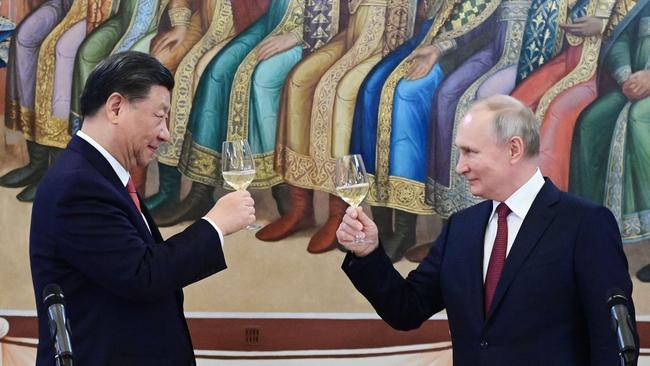
I would like to make it clear we don’t have a military-political alliance with China, an alliance of the kind formed during the Cold War. We consider that Russian-Chinese ties surpass that form of interstate interaction. For instance, Western alliances allow such things as sanctioning and then sabotaging a strategic gas pipeline of an ally to make sure he buys your otherwise non-competitive LNG, or two allies making the third one pay for a dubious multi-billion defence project. These kinds of situations are utterly unthinkable between China and Russia with our relations based on sovereign equality, mutual respect and fair play. And that is indeed the model of relations we believe the world needs. Therefore, the two countries views on international issues are very close.
Now to AUKUS and the Quad. As a matter of principle, Russia favours inclusive mechanisms of equal-footed co-operation built around ASEAN, like the East-Asian summit. Narrow and exclusive formats are counter-productive by definition. In this vein, AUKUS and its nuclear-powered submarines project is a matter of special concern. It is crucial that the participants strictly adhere to their nuclear non-proliferation obligations. In any case, grave risks are obvious here for the strategic stability in Asia-Pacific. We consider that this is more than a defence technology platform. This is a bloc-based foundation for forming NATO-centric infrastructure in the region, with obviously far-reaching negative implications.
SHANAHAN:
So what would be the potential reaction as the years go on, towards the practical development of the AUKUS agreement? And the nuclear submarine campaign given Russia does have a Pacific coast and Pacific bases?
PAVLOVSKY:
It would be unwise to go into hypotheticals for the years ahead. Our principled approach to this issue is clear. And we will follow closely these developments.
SHANAHAN:
The new Labor government, of course, has continued and extended aid including military aid to Ukraine since the defeat of the Coalition government last May. What is the Russian attitude to continued aid to Ukraine from Australia? And there is, of course, continued or a new request for tanks to join the so-called tank coalition.
PAVLOVSKY:
In principle, any country sending lethal weapons to Ukraine becomes de facto a party to the military conflict. We don’t take it lightly, and that of course entails a lot for Russia Australia relations for now and into the future.
But I’d rather focus on other aspects now. The amount of US military assistance to Ukraine has exceeded $US32.5 billion since the beginning of the special military operation, all in all, the West has pumped into Ukraine $US65 billion worth of weapons and other military aid (including what was sent by Australia to the tune of probably $US340 million). To compare, this whole amount is more than the US has spent in 10 years of the Afghan war, it is more than the Russian military budget and it also makes roughly 1/3 of the global spending for Official Development Assistance, which partly also explains why the world majority has difficulty understanding the Western stance on the Ukrainian crisis.
All this astronomic spending has not helped the Ukrainian army to defeat Russia on the battleground. Nobody but Zelensky’s diplomats or self-gaslighted experts can claim there is a military victory for Ukraine looming. Why then, the question arises, why then send them weapons? Recently, I came across a very telling quotation from US Senator Lindsey Graham: “I like the structural path we are on here. As long as we help Ukraine with the weapons they need and the economic support, they will fight to the last person”. Fighting Russia to the last Ukrainian. In fact, it’s cynical but straightforward. The Australian government as always is moving in lock-step with “the main ally”, helping to fuel and fan that war. The tears shed about the plight of Ukraine are crocodile tears.
SHANAHAN:
What is the Russian reaction to Australia’s support for the ICC criminal action against President Putin and Australia’s continuing moves against Russia over the shooting down of the MH 17?
PAVLOVSKY:
There is no secret that the ICC is a puppet body that has nothing to do with objective and unbiased legal proceedings. Do you remember the sad story of ICC Chief Prosecutor, Fatou Bensouda? in June 2020 she opened an investigation into whether US forces had committed war crimes in Afghanistan. Then the US immediately imposed sanctions freezing the accounts of the Prosecutor and her family. Soon afterwards, Bensouda resigned. And her successor, Karim Khan, was wisely focusing ever since on crimes committed by the Taliban. The ICC never issued warrants to arrest any of the culprits of the brutal, unprovoked illegal and immoral invasion of a sovereign country, Iraq, committed in violation of the UN Charter by the US in collusion with the UK, Australia and some other countries (including Ukraine, by the way). And just think that that invasion left 100,000 to 205,000 civilians dead.
Now, I think we’re witnessing a new low for ICC. It looks more like a PR agency involved in implementing black PR projects.
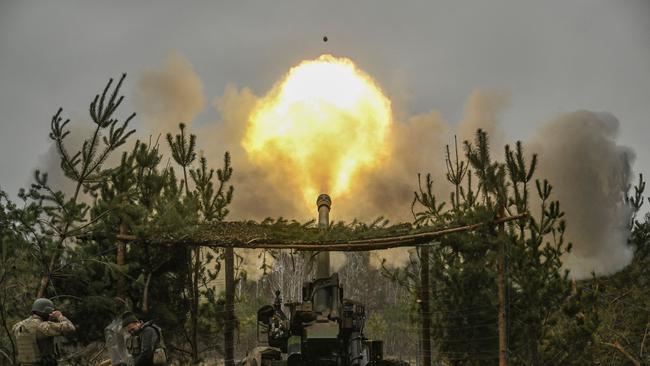
Russia, as you know, has never been a member of the ICC. Russia does not co-operate with ICC nor will ever do so. And this body’s actions with regard to citizens of Russia are legally null and void. As to the outside world, we know from international law that state officials enjoy immunity and this immunity is absolute where high-ranking officials are concerned. The ICC cannot cancel these by its decision, this is clear to anyone acquainted with international law.
However, we understand that the ICC’s decisions may be hailed by a narrow group of countries that are adamant that the world order should be based on “rules” rather than international law, and the “rules” we know depend on who is writing them.
On MH17. Australia, together with the Netherlands, is now trying to build a case against Russia in the International Civil Aviation Organization based on The Hague court decisions. There is nothing new to this. Russia’s position is well known: the investigation and the trial did not meet the criteria of independence and objectivity. They were clearly hijacked right from the beginning by a political agenda. Russia was proclaimed guilty almost the next day, before any investigation was even conceived. And against this background especially telling is what’s going on around the Nord Stream sabotage. There are three national investigations, all of them keeping silent. And the Swedes it seems officially announced the findings were “too sensitive to share”. Russian requests for information are being ignored, proposals for international investigation blocked and at the same time, outright ridiculous versions about the pipeline being blown up by two amateur scuba divers sympathetic to Ukraine are being leaked. I can say that Russia will continue to push for a comprehensive and open international investigation with the mandatory participation of our representatives. It’s the only way to provide the world public with reliable and objective information on the reasons, perpetrators and instigators of the sabotage attacks.
SHANAHAN:
Now, a year ago, you said just after the conflict in Ukraine began, the chances of a diplomatic settlement was very much possible. Now given that at least 300,000 people have died in Ukraine since then, what are the chances of a diplomatic settlement now?
PAVLOVSKY:
I clearly remember my optimistic mood at that time. Talks were underway in Istanbul, Turkiye, where the Ukrainian side came up with written proposals, suggesting Ukraine will be a neutral state with no foreign military bases, which was welcomed by the Russian side.
What happened next? Boris Johnson rushed in to tell Zelensky not to strike the deal. The Ukrainian delegation left and never returned to the table. Then the so-called “Bucha massacre” was staged by the Ukrainian Security Services and the Directorate of psychological operations. There is no doubt about it now. Thus the prospects for peace were successfully blocked and the Western weapons flew to Ukraine.
So it would be safe to say that the conflict could have been over a year ago, at the time of our previous interview, and no further casualties and destruction would have followed. But the West obviously had different plans for Ukrainians. They were supposed to fight and die for the interests of the West and that is what the Kyiv regime ensures they do.
I will refer again to my Ukrainian colleague. Speaking recently at the National Press Club, Ambassador Myroshnychenko said that Ukrainians were “fighting for the US as much as they fight for Ukraine”. I think that he well could have put a full stop after “fighting for the US”. The eighth wave of mobilisation in Ukraine is on. The borders of the country are closed and those potential conscripts who cannot afford to bribe border guards are being chased on the streets by military police just like the game. In fact, the internet is full of these kinds of videos. A couple of days ago, an agreement was struck with the EU and Moldova, on compulsory deportation to Ukraine of the conscription age male refugees. And I wonder if some similar arrangements are being negotiated with Australia too?
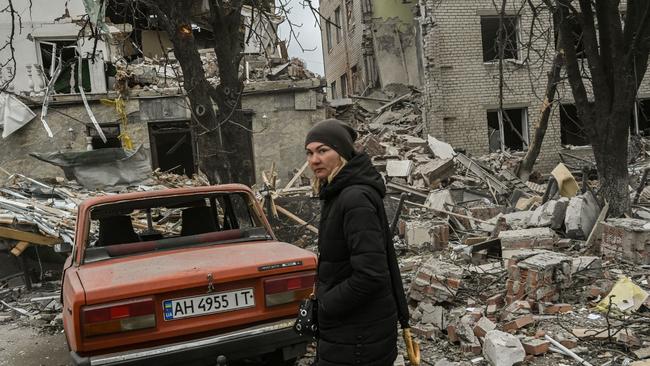
No, I’m not optimistic about peaceful settlement. The current situation perfectly fits the US grand strategy and I’m certain they will protract it as long as they can. In his recent statement the US Secretary of State Antony Blinken said a ceasefire in Ukraine was unacceptable.
Besides, there are so many vested interests at play here, starting of course with major Western defence corporations. Also, Bill Gates speaking at the Lowy Institute in January this year, described the pre-war Ukrainian government as one of the worst in the world – “corrupt, controlled by a few rich people, really unfortunate for the people in Ukraine”. This is in fact corroborated by the global corruption ratings that rank Ukraine 122. Now, guess what happens when one of the most corrupt governments in the world receives dozens of billions of dollars? The Darknet actually is full of offers to buy Western arms supplied to Ukraine. You can even draw a tentative price list: Javelins sell at $US30,000, Switchblade 600 drones at $US7000, small arms, grenades and armour cost from $US1,000 to $US3,600, including delivery within Ukraine. What was previously supplied to Ukraine can now be found as far away as Africa. How long before they start to be used by terrorists all over the world? At last it seems that the US got concerned and sent the task group of government auditors to Kyiv in January and then a series of resignations and sackings of Ukrainian officials followed. However, this is largely unknown in Australia because of highly selective coverage of Ukraine by the media.
SHANAHAN:
Well, there have been reports of those actions in Ukraine on corruption, I know that in The Australian. And obviously, when you say there is no doubt about various things and things that are seen on the internet and on the dark web, there are equally claims made about Russian corruption and conscription and so forth. So, I mean there are obviously two sides to the media war.
PAVLOVSKY:
I agree, we could discuss issues of corruption in Russia separately. But my point is, Australian taxpayers are not spending their money for Russia, so what happens there is not relevant in this context.
SHANAHAN:
Now, finally, you previously said that threatened nuclear biological chemical weapons in Ukraine was a narrative being put forward by the United States given the continued threat to use nuclear weapons, and the proposed movement of nuclear weapons to Belarus, have the chances of nuclear war increased?
PAVLOVSKY:
When you mention the threats of the use of nuclear weapons I can help recollecting president Zelensky’s video address to the Lowy Institute some time ago with the guest calling for preventive nuclear strikes on Russia and the host enthusiastically replying “We take our inspiration from you”.
The main purpose of Russian nuclear weapons is deterrence against a nuclear attack. And what happened now is upon analysing the growing threats, Russia and Belarus deemed it necessary to interact in this area. And our measures are basically what NATO has been doing for many years. I mean, the so-called Joint Nuclear Missions with the military personnel of Belgium, Germany, Italy, the Netherlands and Türkiye being trained to use the US nuclear weapons deployed at their territories. The difference will be that we will not do it thousands of miles away from our national territories.
All in all, it would be naive to think that we’ll just sit and do nothing when the US and NATO attempt to inflict strategic defeat to Russia. Of course in this situation, every provocative step of the West increases the risk of conflict between nuclear states. Let me mention two concerning examples of highly irresponsible conduct by the US. One is the Ukrainian drone attack on the base of Russian strategic nuclear bombers in the city of Engels (and I cannot imagine it could have happened without approval from Washington). Then the latest incident with the US intelligence drone trying to penetrate the restricted zone around Crimea.
In our conversation a year ago, I indeed mentioned biological activities of the US on Ukrainian territory. Since then more evidence has been obtained to substantiate concerns that we are indeed looking at violation of the Biological and Toxin Weapons Convention. The Russian side filed our respective document at the ninth Review Conference of the state parties to that Convention December last year. And I think that the US and Ukraine have some explaining to do.
Another very concerning development is the UK decision to supply Ukraine with depleted uranium munitions. We know they’ve been used by NATO in Serbia. And after that Serbia became number one in Europe in respect of oncological diseases, some soldiers from the Italian contingent were of NATO were affected too. These munitions were also used in Iraq and in Syria, and we know that they are extremely dangerous in terms of nuclear contamination. The consequences will be felt by Ukraine for the generations to come but it is apparently of no concern to the Kyiv government and its Western minders.


